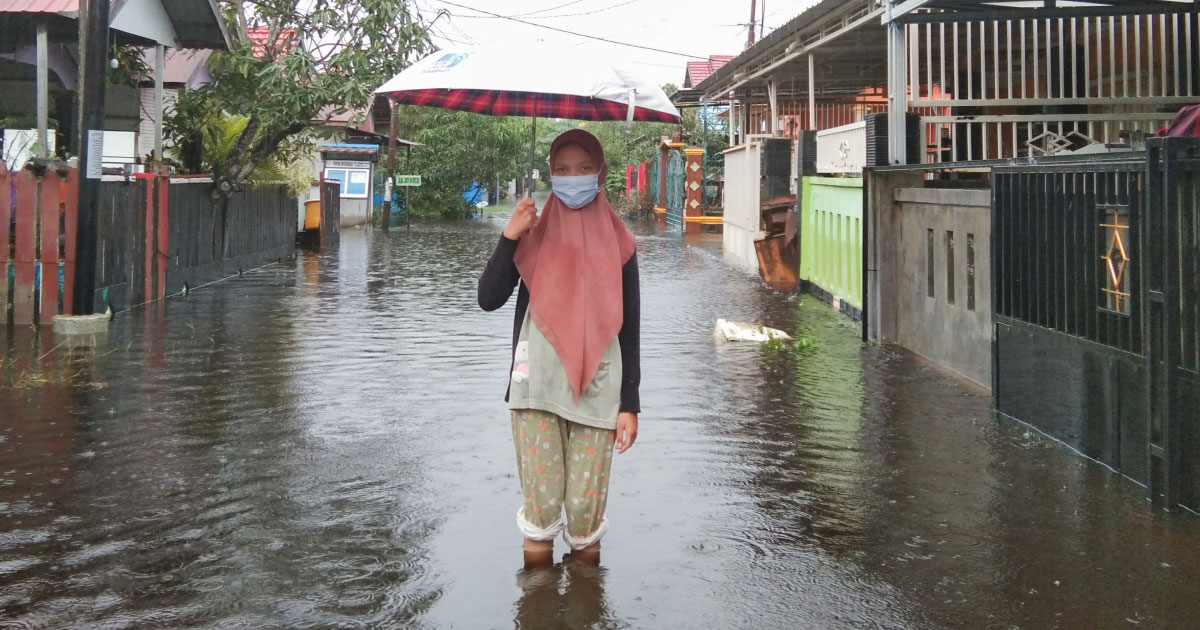

Can COVID-19 Better Prepare Us for Tackling Climate Change?
The COVID-19 pandemic is our test run. For climate change, let's do better.
Whereas the concept of a worldwide catastrophe and full city lockdowns once seemed like science fiction, the COVID-19 pandemic has certainly made nightmares a reality. But if there’s one inarguable observation about COVID, it’s that science saw this coming — and society was warned.
So now that COVID-19 has happened (and is still happening), will the world listen more intently to scientists about another, larger worldwide emergency — climate change? From one global crisis to another, how can the lessons of the pandemic be learned? How can these learnings inspire leaders and decision-makers to tackle global warming before it’s too late?
The COVID divide
The COVID-19 pandemic permeated every facet of life, but while some got their toes wet, others have been drowning. Access to stable Wi-Fi and a working laptop is a luxury afforded to few, and manual labor jobs are not work-from-home friendly. Not all economies could withstand long-term lockdowns, testing is (still) not free for all, vaccine distribution is staggeringly unequal and sick leave is merely a nice-to-have. Factors such as a person’s income level and where they live dramatically affect the extent to which they feel the pressures of the pandemic.
The climate change divide
COVID-19 is not the only global crisis destabilizing life as we know it. Climate change is ravaging the globe, and its effects, like COVID's, are being felt disproportionately. Today, nearly half of the world’s population (between 3.3 and 3.6 billion people) live in contexts that are “highly vulnerable to climate change,” according to the Intergovernmental Panel on Climate Change (IPCC). That figure is projected to rise.
The relationship between the health of the environment and the health of people is unshakeable. One’s access to clean water, proper sanitation, efficient waste disposal and structurally sound shelter are all major factors in one’s physical (and mental) health. Labor-intensive jobs typically correspond to lower household incomes, and these jobs cause continuous strain on the body and long-term health effects.
Enter global warming, and you have extreme weather (with no shelter to protect you), global disease (and no medical aid to assist you), water pollution (and no running water to drink) and vermin infestations from disrupted ecosystems (and no service delivery to clear your rubbish). Undeniably, as the ice caps melt, these poverty factors quickly become poverty multipliers, exacerbating the problems already being faced by poor and disadvantaged communities.
From one global crisis to another
The World Economic Forum (WEF), since the outset of the pandemic, has been analyzing the parallels between the two crises of climate change and COVID-19. Like COVID, climate change will demand a global-to-local response. Like COVID, it will call for long-term change and long-term thinking. Like COVID, it will require politicians ceding to the needs of the vulnerable and nonprofitable.
Extraordinary events will never stop occurring — think the invasion of Ukraine, the murder of George Floyd, the Australian wildfires, the war in Syria. We need to be more proactive than simply reactive in how we tackle large-scale calamities. Climate change cannot be an event the world deprioritizes until it’s too late.
It’s necessary to note that where COVID is a furnace, climate change is a wildfire. The stakes are much higher because melting ice caps, crop failures and extreme weather systems represent existential threats to Earth’s entire myriad of species and ecosystems — not just humans.
Global crises, global consequences
It’s easy to ignore that which doesn’t immediately affect you. For higher-income households and those in positions of power, climate change has been an unsettling hum in the background, occasionally rearing its head in the form of a brief news item or a David Attenborough special. In the same vein that a diagnosis of a long-term health problem might not provoke the same active response as an immediate health issue, the warning about climate change has been treated as disposable for its slow-burn features — but now, the clock is reaching zero.
The “test-run” global crisis of the COVID-19 pandemic has affected everybody, from the megaprivileged to the less privileged, from the small-scale consequences of restricted holiday travel and cancelled concerts to losing loved ones and shattered livelihoods. Worldwide mental health suffered hugely due to isolation and financial stress, and according to a recent UK government study, the early cognitive and social development of children has even been delayed.
“Pandemic” is very much in everybody's vocabulary today. Does that mean that the world will now better heed the warnings of another global crisis — climate change?
When it comes to climate change, everyone is a stakeholder
Brands have platforms and audiences to instigate change. They have the power to guide conversations and ensure that messages on climate change transcend politics. WE’s recent Brands in Motion report, The Bravery Mandate, revealed that delivering on societal and environmental issues is in fact no longer a good-to-have but an expectation of brands, according to 74% of respondents. Brands are truly obligated to work for a greater good.
This also means that retrospective resolution of past misdeeds has to be better than trying to cover up the past. Owning up to past errors and pollution contributions will benefit a brand’s reputation as well as the environment.
Borderless problems require borderless cooperation. To achieve large-scale and long-term change, all stakeholders need to come to the table. A WEF report on key mobility investment archetypes for long-term, large-scale transformation in the transportation industry (a significant contributor to global warming) explains that one of the biggest obstacles in the road to net-zero transport is the lack of coordinated investment. Partnerships between businesses and local governments are vital for instigating change on national and international levels.
Tackling the infodemic to improve our intellectual health
A parasitic player in any global crisis is misinformation, and COVID-19 and climate change are no exception. For the pandemic, misinformation (whether malicious or accidental) continues to prevent people from coming together, fueling COVID (and climate change) denialists.
Beyond slowing the vaccine uptake and the following of health guidelines, the “infodemic” (as coined by the World Health Organization [WHO]) breeds mistrust and division. Curbing misinformation is the collective responsibility of all stakeholders, although brands can develop health campaigns to champion truth and extinguish the plague of polarization. Climate change remains an unsolved challenge for humanity, and sometimes science will get it wrong, depending on the data and technology available. Brands need to humanize science and validate that, despite errors, climate change is very real.
It's not over yet
The future is not all bleak. Societal leaders need to remind the world of two things: that climate change is very real and that it’s passing the point of no return — but also that we have systems in place to fight it. Technology and science continue to innovate greener ways forward, and this year’s COP27 in Egypt is a chance to instigate tangible and immediate action. Delivering on the Paris Agreement could prove to be the world’s best hope for global health — a synthesis of the health of the environment and the health of people.
We must ensure that our climate change mitigation and adaptation approaches are a “just transition” — that they are inclusive, equitable and accessible and that even the most vulnerable of communities are considered. Every being is ultimately a stakeholder in the planet and deserves to be recognized in its rescue.
The IPCC’s most recent progress report may be ominous, but it does confirm that rapid and real actions can still make a difference. Leaders — from governments to global organizations to influential brands and businesses — need to drive home the lessons of COVID-19 that climate-related catastrophes are fact, not fiction, and will affect us all. There is still a road map to keep the temperature below 1.5 degrees; the world just needs to act.
The latest blogs from WE
MNCs in China Must Prioritize Internal Communications
To Tell Your ESG Story, Think Digital
5 Ways Tech Will Reshape Culture in 2024



